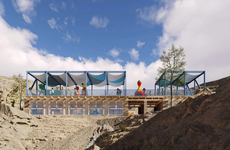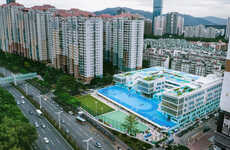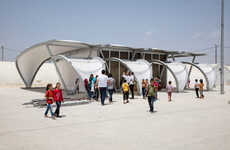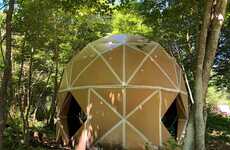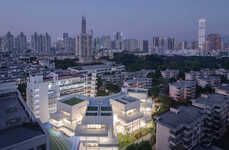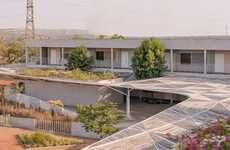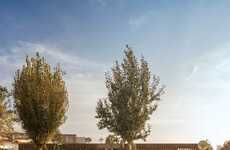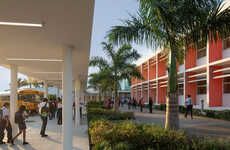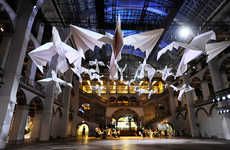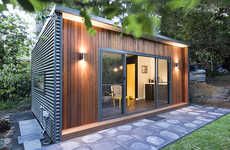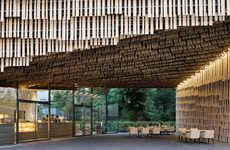
Shigaru Ban Helps Those in Need by Replacing the Miao Miao School in China
Jamie Danielle Munro — April 25, 2014 — Social Good
References: shigerubanarchitects & designboom
After the Miao Miao school in China was damaged by the earthquake that swept through the area in April 2013, many children were left with no place to go and learn. To solve this problem, Shigaru Ban, an architect known for his pop-up building abilities and helping those in need, decided to build this paper nursery made from recycled materials.
The frame of this school in China was put together with cardboard pieces, steel and wood. While the space is small, it still does the job for giving the children a central place to come and be taught on a daily basis. There are two sections to the school, with a small corridor to connect the rooms. Heating of course is limited, so the children have to bundle up, but at least they are not deprived of an education.
Photo Credits: designboom, shigerubanarchitects
The frame of this school in China was put together with cardboard pieces, steel and wood. While the space is small, it still does the job for giving the children a central place to come and be taught on a daily basis. There are two sections to the school, with a small corridor to connect the rooms. Heating of course is limited, so the children have to bundle up, but at least they are not deprived of an education.
Photo Credits: designboom, shigerubanarchitects
Trend Themes
1. Sustainable Building Materials - The rising demand for sustainable and eco-friendly building materials presents an opportunity for innovative architects and builders to explore new materials to build structures that have lower environmental impact.
2. Pop-up Architecture - A growing trend in pop-up architecture reveals an opportunity to create quick and cheap temporary structures that can serve those in need in emergency situations like natural calamities and refugee settlements.
3. Community-centered Design - Community-centered design and architecture is an emerging trend that emphasizes the importance of architect's role in creating social and economic value while meeting the needs and expectations of the community they serve.
Industry Implications
1. Construction - The construction industry can explore sustainable building materials and community-centered designs to create eco-friendly structures that serve the local community and contribute to social and economic growth.
2. Humanitarian Aid - Humanitarian aid organizations and NGOs can rely on pop-up architecture and sustainable building materials to provide quick and cost-effective shelter solutions to the refugees and disaster-stricken regions.
3. Architecture and Design - Architects and designers can develop innovative pop-up structures and eco-friendly building materials that address the local needs, meet the community expectations and create sustainable, long-term value for the society and environment.
4.3
Score
Popularity
Activity
Freshness


